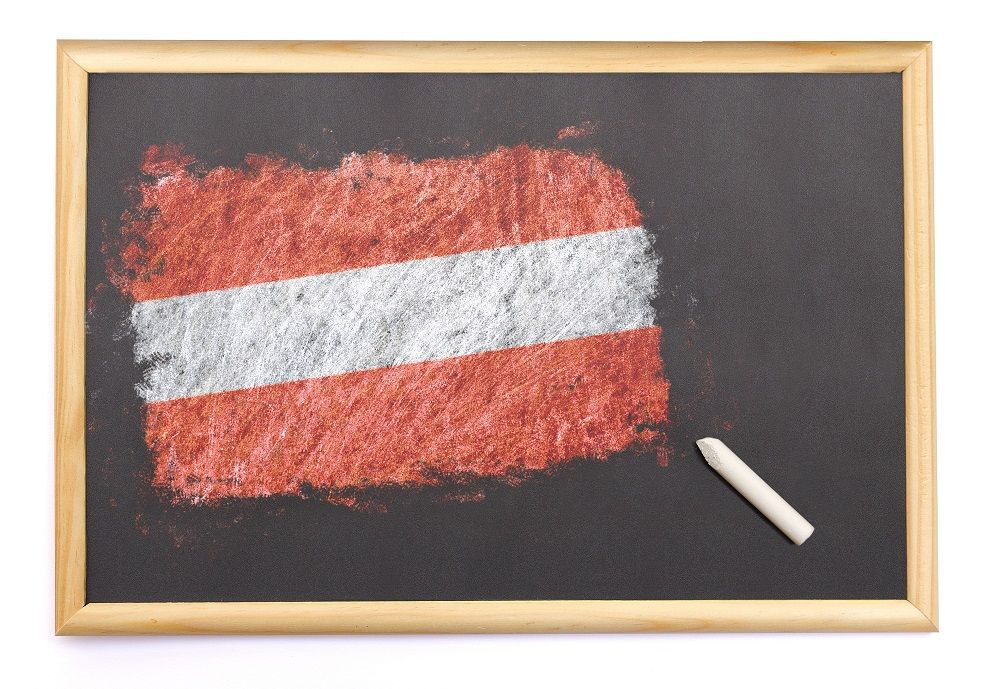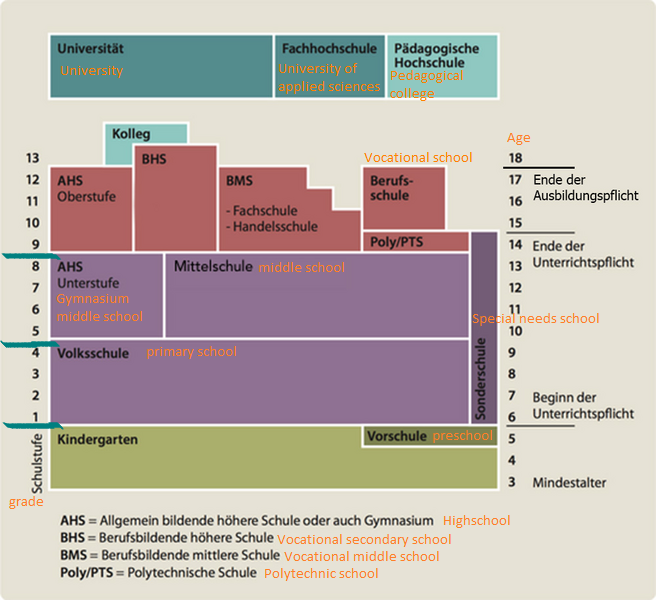

2 June 2024
Pepper The Fox
How is the Austrian school system structured?
How is the Austrian school system structured?
Education and schooling are compulsory in Austria
- ...therefore all children (from the age of 6) must go to school.
- Before the start of school, half-day kindergarten attendance (at least 20 hours per week) is compulsory for children who have turned five by August 31 from September to June (with the exception of school vacations and the possibility of vacation for up to a maximum of 5 weeks). Prior to this, the state or the respective city is not obliged to offer a childcare place.
- Compulsory schooling lasts nine years. Often many children and young people in Austria then go to school for even longer and graduate with a so-called Matura, for example. Others, for instance, decide to learn a specific profession as part of an “apprenticeship”.
- Attending a public school in Austria is free of charge. (Of course, depending on the program: travel, excursions, etc., costs may be incurred at some points) Private (international) schools are subject to a fee. In Austria, however, parents can also teach their children at home (“home schooling”).

Grafik © Parlamentsdirektion / Kinderbüro der Universität Wien
Times and afternoon care
- School hours vary greatly from school to school.
In the morning, lessons start at 8 a.m. at most educational establishments.
Closing times vary and can range from midday to the afternoon.
- For children with working parents who cannot yet be at home alone in the afternoon, there is the option of taking advantage of afternoon childcare services. Here the children can have lunch, do their homework with supervision and spend the afternoon hours with other children of the same age and caregivers.
These so-called “Horte” usually charge a fee.
In an international comparison, the Austrian education system is in the good middle range. It can therefore be said that a solid educational basis is guaranteed for your children.
The education on offer is multifaceted: from language subjects to sport, music, fine arts and much more, there is something for every child.
In addition, the option of attending a free public school is certainly a big (financial) plus for many families.
Nevertheless, many parents now decide to send their children to private schools or even pay attention to which residential area they want to settle in before they move in order to provide their children with the best possible level of education.
The fact that Austria has long been a popular settlement destination for many different people of different origins and reasons for moving here also has an impact on education in that children from international families have to be picked up by teachers at different educational points as a result. This can therefore lead to a delay in the pace of teaching in the respective classes.
RANDOS consultants are in constant contact with school principals and admissions officers and have a good insight into the possibilities, advantages and disadvantages, as well as special features of the respective schools. This guarantees a good overview of the Austrian educational offer in relation to the individual needs and wishes of the clients.
For further information and support in finding a kindergarten or school place for your children, please contact the RANDOS office or visit our RANDOS service homepage.
Don’t worry – be relocAIDed…